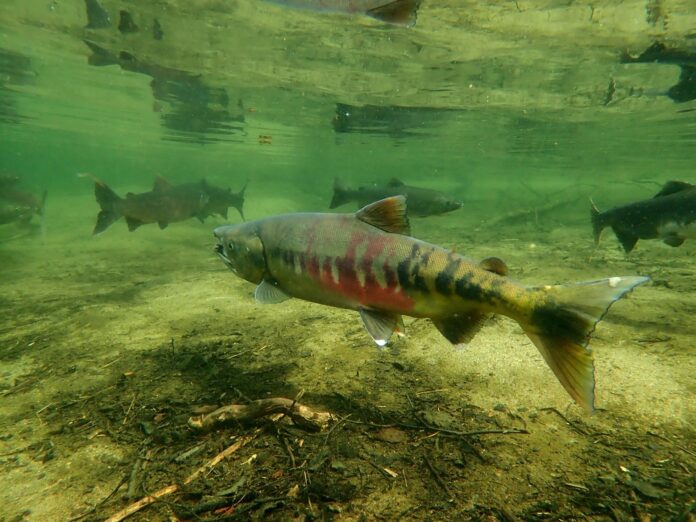Modern genetics and ancient history may help researchers better understand the 40-year decline in Pacific salmon populations.
Genome BC is working with the Tsleil-Waututh Nation along with archaeologists from SFU and UBC to study DNA from salmon bones in ancient middens, refuse piles that were left behind by ancient seafood harvesters. They found a significant number of male Chum salmon in all the sites they studied, suggesting they were selectively harvested, preserving the females to maintain future stocks.
It’s the first archaeological evidence of selective fisheries in the Pacific northwest.
The findings prompted researchers to find out why ancient people started the practice. They are now working to see if it was a common practice or if it started in response to salmon declines, possibly caused by climatic changes.
The ancestors of Coast Salish peoples are known to have lived around the Salish Sea since at least 2,000 BCE. Archaeological and isotopic evidence suggests about 95 percent of the protein in their diets came from marine sources. Increasingly detailed analyses of food remains from archaeological sites, using tools like ancient DNA, are providing new insights into the lives of the Coast Salish peoples and how they used and managed resources.
“Tsleil-Waututh knowledge of their ancestors’ practices or interpretations of their ancestors’ responses to changes in salmon behaviour or abundance are not generally accessible to researchers. By maintaining a continuous dialogue in the research process with Tsleil-Waututh knowledge holders and staff, we can interweave our genetic and temporal results with this knowledge to better explain and interpret our conclusions,” says Dr. Jesse Morin, one of the project co-leads and an adjunct professor at UBC Institute for the Oceans and Fisheries and the Simon Fraser University Department of Archaeology, who has done research for the Tsleil-Waututh Nation on this topic since April 2011.
The research will help efforts to restore Pacific salmon stocks along the West Coast of Canada.






